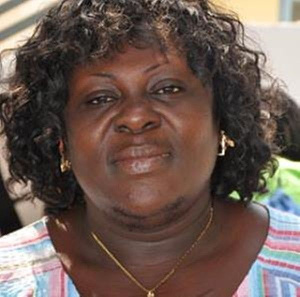How an Ivorian domestic worker escaped captivity in Kuwait
When 25-year-old Désirée Kouassi left the Ivory Coast for a job as a domestic worker in Kuwait, she hoped to make good money. Instead, she was held against her will by her employer and sexually abused for several months. Throughout her ordeal, she used her smartphone to take photos and videos as evidence. She got in touch with the FRANCE 24 Observers team, an action which triggered a series of events leading to her rescue.
On October 1, 2018, the FRANCE 24 Observers team received a message on WhatsApp from an Ivorian man.
The man had heard about a shady Kuwaiti agency called Al-Fadhli that recruits domestic workers and exploits them. His source was a childhood friend, who herself was employed by the agency and was experiencing abuse. He told us that some of these workers were being held against their will and could only obtain food in exchange for sexual favors.
“The boss demands sexual favours in exchange for food”
The FRANCE 24 Observers managed to contact this man’s childhood friend, Désirée Kouassi, who, at the time, was employed by the Al-Fadhli agency and was locked up in an apartment in Al Jahra, Kuwait. She managed to take several photos documenting her situation. On October 2, over the phone, she told our journalists what she was experiencing:
When I arrived in Kuwait in January 2018, I was with a good agency. I worked for several months in different homes, but I kept getting ill. Finally, the clients and the agency dropped me because they didn’t want to pay my medical bills. I was “given” to another agency.
Working for this second agency is hell. We go from one unpaid trial period to another at the homes of different employers. When we are not at someone’s home, we are locked in an apartment.

The boss comes every morning around 11am and returns every night. He demands sexual favours in exchange for food and bottled water. When we refuse, he ignores us, but, if we accept, he gives us what we need. He put bars in the windows and asks the neighbors to keep an eye on us.

I don’t have access to my documents. My sponsor [Editor’s note: her former employer] has my passport, my visa and my residency permit.
In Kuwait and other Gulf countries, foreign domestic workers must have an employer “sponsor” them in order for them to be able to work in what is known as the “kafala” system. The sponsor is then legally responsible for these workers and is the only person who can decide if they leave a job or change jobs. If a domestic worker runs away from her employer, then the sponsor can be held legally responsible and be fined, arrested or even sentenced to up to six months in prison (if they are foreign nationals, they can even be thrown out of the country).
Since 2015, law no. 68 has guaranteed some rights to foreign domestic workers, including one day of rest per week. However, according to Kuwaiti lawyer Atyab Alshatti, “it is hard to find a household that applies this law” because it is not enforced.

In her interview with the FRANCE 24 Observers team on October 2, Kouassi described her horrible situation.
I asked the boss to let me go back to the Ivory Coast and he said that I would have to pay around 950 dinars [Editor’s note: about 2,700 euros]. I tried to bluff and said “Ok, no problem” but when I asked him for contacts or any other information, he didn’t have anything for me and I saw that he clearly had no intentions of letting me go.

Currently, there are six of us women in the apartment. We are afraid to call the police because we are pretty sure that they are in cahoots with the agency and that could cause us more problems. The clients who take us for trial periods don’t offer us help either. They treat us poorly and, in general, they don’t like black people, they like white people [Editor’s note: A study by the UN’s International Labour Organisation found that most Kuwaiti families prefer to employ Filipino domestic workers].
After speaking to Kouassi, the FRANCE 24 Observers gave her a phone number for the NGO Kuwait Human Rights Society, which helps to protect the rights of domestic workers, as well as the number for the Ivory Coast Embassy in Saudi Arabia, which is in charge of Ivorian nationals living in Kuwait, as well as the number for the Kuwaiti police. Kouassi said that none of these organisations took her seriously when she called them.
“Kouassi hadn’t eaten for two days and had trouble walking”
The FRANCE 24 Observers contacted the Kuwait Human Rights Society on October 8. This time, the NGO responded quickly and contacted Kuwaiti officials to help rescue Kouassi. Atyab Alshatti, a lawyer and the deputy secretary general of Kuwait Human Rights Society, oversaw the operation and told the FRANCE 24 Observers what was happening in real time.
When your team contacted us on October 8 about the conditions that Kouassi and the five other women were living in, we contacted the Department of Criminal Investigation [Editor’s note: a branch of the Kuwaiti police] and filed a complaint against the agency.
Kouassi was still in the apartment with the other women. She tried on several occasions to send us her location on Whatsapp, but it wasn’t precise enough. Finally, the women gave us the number on the apartment’s electrical meter and the police were able to localise the apartment.

The security forces surrounded the building on the evening of October 8 and entered the apartment. They arrested the boss, who was in the apartment. The police told the women they could be freed and sent to a shelter. Kouassi accepted but the other women refused; they were very afraid and didn’t know their rights.
Then, I went to the police station with Kouassi. She hadn’t eaten for two days and had trouble walking.

I also saw the suspect, who is around 60 years old, and who has been placed in detention. Kouassi didn’t want to press charges against him [Editor’s note: because she wanted to return to the Ivory Coast as soon as possible] but the investigators who went into the apartment are pressing charges for illegal confinement. They also opened an investigation into human trafficking. According to the latest information I have, this man is in prison awaiting his trial. He risks a hefty sentence.

Kouassi was sent to a government-run shelter for foreign domestic workers who experience abuse. She was able to go back to the Ivory Coast on October 13, 2018.
In the meantime, the department of domestic workers under the Kuwaiti Minister of the Interior shut down the agency. Twenty-five women, including the five women who shared a room with Kouassi, were freed from several different apartments and brought to the shelter.

Kouassi told the FRANCE 24 Observers that she had been treated well at the government-run shelter. Some NGOs working to protect the rights of foreign domestic workers have been critical of the shelters, which workers are not permitted to leave until their deportation.
She said she wanted to share the details of her story and her photographs in this article in order to tell the world about what was happening in Kuwait and to warn other women who might be thinking of going to work there.
Crisis between Kuwait and the Philippines
In early 2018, a diplomatic row broke out between the Philippines and Kuwait after a Filipino woman named Joanna Demafelis was found dead in the freezer of the people who were employing her as a domestic worker. After that, Manila banned its citizens from working in Kuwait for several months until the two countries struck a deal in May 2018. One of the results of this diplomatic crisis is that more domestic workers were recruited in Africa.
According to a 2010 report from Human Rights Watch, nearly 660,000 domestic workers, mostly women, are working in Kuwait, a small country with a population of about 1.3 million Kuwaiti citizens and many foreign nationals.




